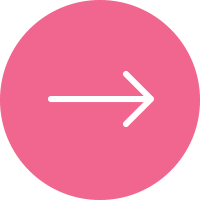
GlobCom
Authentic learning for tomorrow’s communication professionals
Vlogs - video reflections on the learning experience

As part of their Cross-Cultural Communication learning journey, Curtin students are expected to upload at least six vlogs (video blogs) as part of their Cross Cultural Communication learning journey. The vlogs allow students to share their critical reflections on the theories and understanding of cross cultural communication, cases and cross cultural implications discussed during seminars, as well as provide them with an opportunity to share their thoughts, insights and reflections on the learning experience and project challenges with their peers.
Vlog Examples
Megan (https://www.youtube.com/watch?v=8xOGzFvYsIc&feature=youtu.be)
(https://www.youtube.com/watch?v=nlXA-rqqnk4)
and Lachie
https://www.youtube.com/watch?v=dsEiSkW3cTA&feature=youtu.be
reflect on their GlobCom experience

In order to deepen students’ reflective practice, the unit introduced a vlog assessment as part of its blended learning re-design in 2012. These diaries encourage students to question taken-for-granted assumptions, to see their own practice through others’ (e.g. global team members) eyes and to extend their learning experience through ongoing critical reflection (Loughran, 2002). Simultaneously, the vlogs provide instructors with timely, first-hand insights into the learning experience from multiple perspectives, potentially indicating the need for ‘intervention’ (e.g. conflict resolution, poor attitude, misconceptions) or relevant ‘coaching, as well as spontaneous learning opportunities to be shared with and expanded to the broader student cohort.
Through ongoing self-assessment, Curtin students reflect on discussions, debates, case studies and topical issues covered during their weekly interactive seminars, as well as on additional readings and emerging industry-based case studies. These critical reflections are shared across campuses, thereby enabling students to gain an insight into their peers’ perspectives, as well as into their experiences with the global project. Boud (1991) defines self-assessment as “the involvement of students in identifying standards and/or criteria to apply to their work and making judgements about the extent to which they have met these criteria and standards” (p. 5). The vlog assessment does this by encouraging students to take some time out of their busy project commitments in order to take a critical look at their own learning journey to date.
Race (2001) opines that when students assess work from a personal perspective, through a learner diary or portfolio, the assessment exercise becomes more meaningful. Self-assessments enable students to develop skills in critical reflection and self awareness. This inadvertently benefits students as it applies succinctly to peer assessment exercises at the later stages of the project-based learning assignment, as well as provides them for useful skills to draw on throughout their future careers.

Example of student post accompanying vlog reflection on the 2015 GlobCom Symposium, shared with peers

References
Boud, D. (1991). Implementing student self-assessment: Higher Education Research abd Development Society of Australasia (HERDSA).
Loughran, J. J. (2002). Effective Reflective Practice:In Search of Meaning in Learning about Teaching. Journal of teacher education, 53(1), 33-43.
Race, P. (2001). A Briefing on Self, Peer and Group Assessment. Retrieved from https://phil-race.co.uk/wp-content/uploads/Self,_peer_and_group_assessment.pdf


